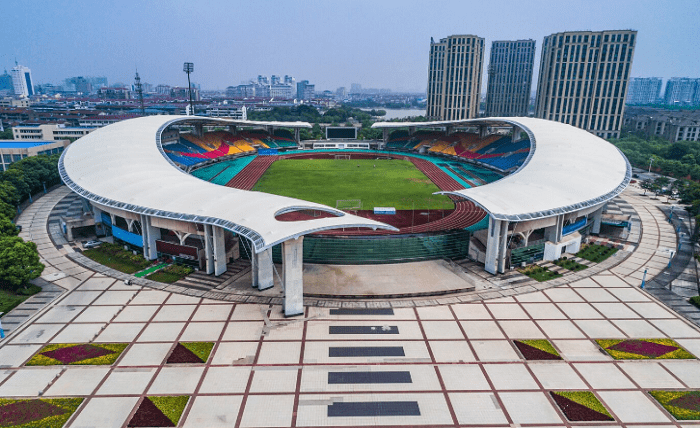Investing in properties near major stadiums is a fascinating niche within the real estate market that offers unique benefits and challenges. These investments can yield attractive returns but also come with potential risks. Larry Weltman explores why this market is appealing, the potential outcomes, and key factors to consider.
The Appeal Of Stadium Proximity
Properties near major stadiums often enjoy heightened demand due to their prime locations. Stadiums attract large crowds for games, concerts, and events, creating a bustling environment that can boost the desirability of nearby real estate. This increased foot traffic can lead to higher rental income and property values.
One of the main advantages of investing in properties near stadiums is the convenience they offer to potential tenants or buyers. Sports enthusiasts and event-goers frequently seek accommodations close to stadiums to avoid long commutes and enjoy the vibrant atmosphere. This demand can lead to higher occupancy rates and rental yields for properties in these areas.
Additionally, areas surrounding major stadiums often see significant investments in infrastructure and amenities. Local governments and private developers may invest in transportation improvements, retail spaces, restaurants, and entertainment venues to cater to the influx of visitors. These enhancements can further increase the attractiveness and value of nearby properties.
Potential Returns And Risks
Investing in properties near stadiums can yield attractive returns but also comes with risks. The potential benefits include higher rental income, as properties close to stadiums can command premium rents due to their prime location. Short-term rentals, like those listed on Airbnb, can be particularly lucrative during events and peak seasons.
Another advantage is property value appreciation. The development of a major stadium and subsequent infrastructure improvements can lead to property value appreciation over time, especially for investors who purchase properties early in the development phase. Commercial opportunities abound, as properties near stadiums are not limited to residential use. Retail spaces, restaurants, and hotels can thrive in these high-traffic areas, providing diverse revenue streams for investors.
However, there are significant risks and challenges to consider. Market volatility is a primary concern, as the real estate market near stadiums can be influenced by the performance and popularity of the sports teams and events hosted at the venue. Economic downturns or poor team performance can negatively impact property demand and values.
Noise and congestion associated with events can also be a drawback, potentially deterring some tenants or buyers outside of event days. Lastly, regulatory changes pose a risk, as local regulations and zoning laws can impact the feasibility and profitability of real estate investments near stadiums. Investors must stay informed about any policy changes that could affect their properties.
Key Considerations For Investors
Careful consideration and due diligence are essential for investing in properties near major stadiums. Here are some key factors to keep in mind:
Location Analysis
Conduct a thorough analysis of the location to understand its potential for growth and development. Consider factors such as accessibility, transportation options, and the overall neighborhood vibe. Areas with a mix of residential, commercial, and recreational facilities are often more attractive to renters and buyers.
Market Research
Research the local real estate market to assess demand and supply dynamics. Analyze rental trends, property values, and occupancy rates to gauge the potential returns on investment. Understanding the target demographic—sports fans, event-goers, or tourists—can help tailor the investment strategy.
Infrastructure And Development Plans
Stay informed about any upcoming infrastructure projects or development plans around the stadium. Investments in public transportation, roads, and amenities can significantly impact property values. Additionally, monitor any planned stadium expansions or renovations, as these can influence the area’s desirability.
Property Management
Effective property management is crucial for maximizing returns on investments near stadiums. Consider whether you will manage the property yourself or hire a professional property management company. For short-term rentals, ensure that the property is well-maintained and marketed to attract guests during events.
Financial Planning
Develop a comprehensive financial plan that includes projected rental income, expenses, and potential risks. Factor in costs such as property taxes, maintenance, insurance, and management fees. It’s also wise to have a contingency plan in case of market fluctuations or unexpected expenses.
Conclusion
Stadiums can be lucrative, offering higher rental income and property value appreciation due to their prime locations and infrastructure enhancements. However, investors must consider risks such as market volatility, noise, congestion, and potential regulatory changes. Larry Weltman says thorough research, financial planning, and effective property management are essential for maximizing returns and mitigating risks.



